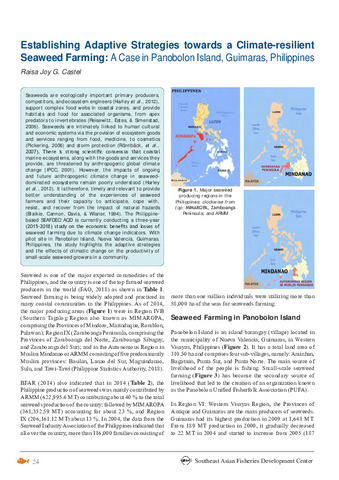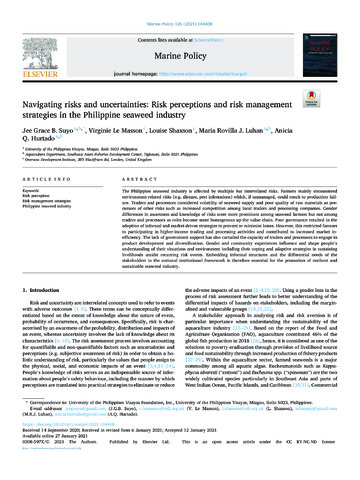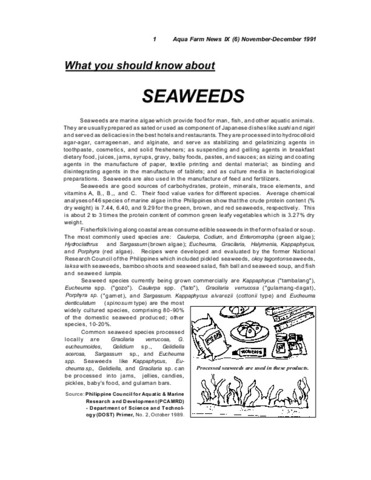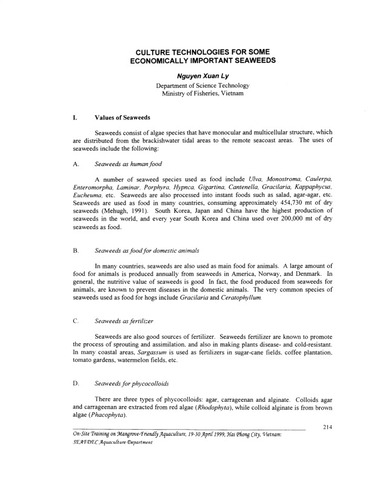Establishing adaptive strategies towards a climate-resilient seaweed farming: A case in Panobolon Island, Guimaras, Philippines
Share
Abstract
Seaweeds are ecologically important primary producers, competitors, and ecosystem engineers (Harley et al., 2012), support complex food webs in coastal zones, and provide habitats and food for associated organisms, from apex predators to invertebrates (Reisewitz, Estes, & Simenstad, 2006). Seaweeds are intimately linked to human cultural and economic systems via the provision of ecosystem goods and services ranging from food, medicine, to cosmetics (Pickering, 2006) and storm protection (Rönnbäck, et al., 2007). There is strong scientific consensus that coastal marine ecosystems, along with the goods and services they provide, are threatened by anthropogenic global climate change (IPCC, 2001). However, the impacts of ongoing and future anthropogenic climate change in seaweeddominated ecosystems remain poorly understood (Harley et al., 2012). It is therefore, timely and relevant to provide better understanding of the experiences of seaweed farmers and their capacity to anticipate, cope with, resist, and recover from the impact of natural hazards (Blaikie, Cannon, Davis, & Wisner, 1994). The Philippine-based SEAFDEC/AQD is currently conducting a three-year (2015-2018) study on the economic benefits and losses of seaweed farming due to climate change indicators. With pilot site in Panobolon Island, Nueva Valencia, Guimaras, Philippines, the study highlights the adaptive strategies and the effects of climatic change on the productivity of small-scale seaweed growers in a community.
Suggested Citation
Castel, R. J. G. (2018). Establishing adaptive strategies towards a climate-resilient seaweed farming: A case in Panobolon Island, Guimaras, Philippines. Fish for the People , 16(3), 24-27. http://hdl.handle.net/20.500.12066/4331
Subject
Collections
Related items
Showing items related by title, author, creator and subject.
-
Navigating risks and uncertainties: Risk perceptions and risk management strategies in the Philippine seaweed industry
Suyo, Jee Grace; Le Masson, Virginie; Shaxson, Louise; Luhan, Maria Rovilla; Hurtado, Anicia Q. (Elsevier, 2021-04)The Philippine seaweed industry is affected by multiple but interrelated risks. Farmers mainly encountered environment-related risks (e.g. disease, pest infestations) which, if unmanaged, could result to production failure. ... -
What you should know about seaweeds
Carreon-Lagoc, Julia; Southeast Asian Fisheries Development Center, Aquaculture Department (Aquaculture Department, Southeast Asian Fisheries Development Center, 1991) -
Culture technologies for some economically important seaweeds
Ly, Nguyen Xuan (Aquaculture Department, Southeast Asian Fisheries Development Center, 2000)





